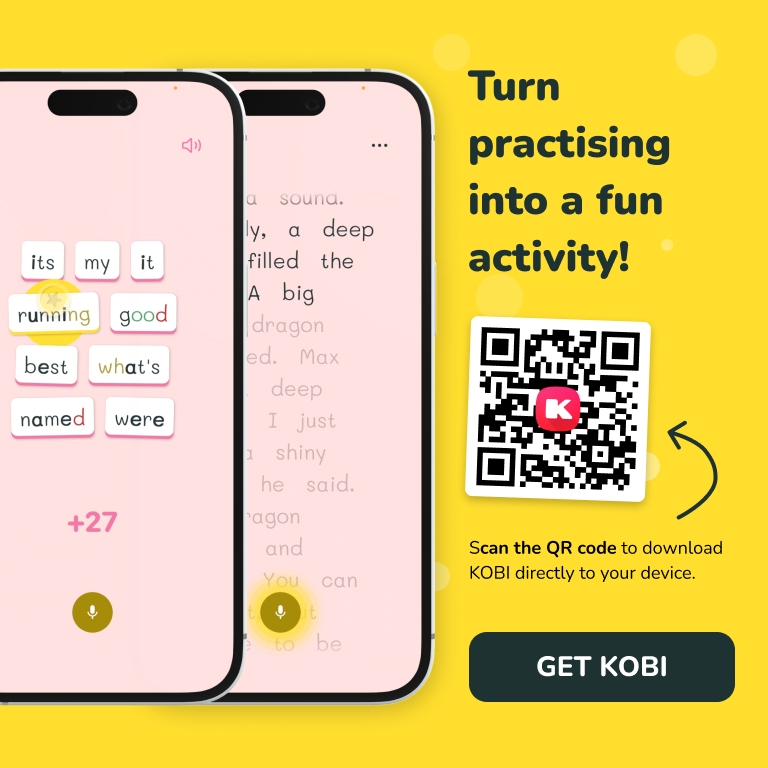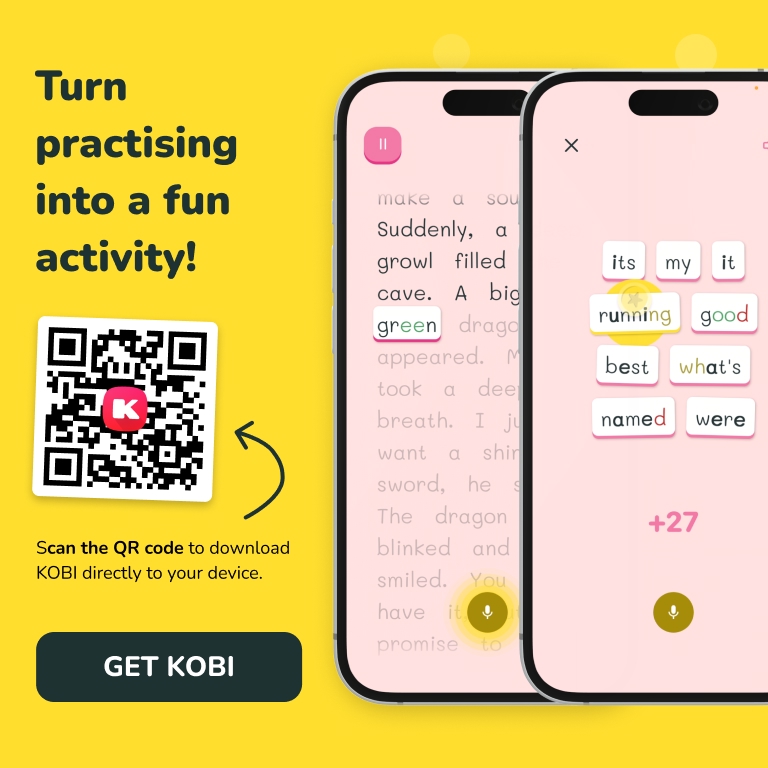Summary: What You’ll Learn in This Article
- Why traditional reading methods often fail neurodivergent learners
- The Science of Reading and how it applies to diverse brains
- How KOBI creates a customized, calm reading experience
- Key app features that reduce overwhelm and increase focus
- Practical ways to support your neurodivergent reader at home
Reading Can Be Joyful—Even for Struggling Readers
If your neurodivergent child dreads reading time, you’re not alone. Many homeschooling parents watch their child tense up, shut down, or even cry when it’s time to read.
But here’s the truth: Reading doesn’t have to end in frustration. With the right tools and strategies, your child can go from overwhelmed to empowered.
That’s where KOBI steps in—built with the unique needs of neurodivergent learners at heart.

Why Traditional Methods Often Fall Short
Children with ADHD, dyslexia, sensory processing challenges, or autism may find typical reading approaches visually overstimulating, cognitively demanding, or emotionally discouraging.
The Science of Reading—and models like Scarborough’s Reading Rope—tells us that successful reading requires both decoding skills and language comprehension. But for neurodivergent learners, we also need to consider:
- Cognitive load and working memory limits
- Visual processing difficulties
- Attention regulation
- Emotional readiness and confidence
Most reading programs overlook these needs. KOBI doesn’t.
How KOBI Creates a Neurodivergent-Friendly Experience
KOBI turns overwhelm into opportunity with features designed to match diverse learning styles:
KOBIfication (Custom Formatting):
Choose fonts like OpenDyslexic, adjust spacing, and apply color rules to ease visual processing and focus.

Magic Finger Mode:
Helps guide attention line-by-line and offers immediate, low-pressure support when a child is stuck—perfect for those with focus challenges or decoding gaps.
KOBI Together (Read-Along):
KOBI reads aloud while prompting your child to participate by reading key words aloud. A balance of passive listening and active decoding that reduces anxiety.
Voice-Based Comprehension Checks:
Kids respond to comprehension questions out loud. This bypasses writing stress and builds verbal reasoning skills.
Gentle, Motivating Feedback:
Positive sounds, stars, and supportive cues keep kids going without overwhelming them.
These tools are backed by research from Shaywitz & Shaywitz (2003) and Tressoldi et al. (2007), showing that multisensory, scaffolded reading practices improve fluency and comprehension for neurodivergent learners.

Why Homeschoolers Trust KOBI
- Reduces emotional resistance to reading
- Doesn’t require a diagnosis to be effective
- Promotes independence while giving just-right support
- Easy to use daily, without parent prep
KOBI meets your child where they are—and helps them move forward.
Tips to Support Your Neurodivergent Reader at Home
- Create a sensory-friendly reading nook. Soft lighting and quiet space can reduce distractions.
- Let them customize their screen. Empower them to pick fonts, colors, and text size.
- Stick to short, consistent sessions. 10-15 minutes a day is enough to build momentum.
- Celebrate effort over perfection. Every tap, every star, every sentence counts.
- Listen first, then read together. KOBI’s audio support lowers anxiety and builds trust.

Reading Shouldn’t Hurt
You don’t need to choose between structure and flexibility. Between fluency and fun. KOBI gives you both—a thoughtful, joyful way to help your neurodivergent child fall in love with reading on their own terms.
Try it today and turn struggle into self-belief.
Key Takeaways
- Neurodivergent learners need more than phonics—they need support for attention, confidence, and emotion
- KOBI uses customization and scaffolding to reduce reading stress
- The app aligns with research-based best practices for struggling readers
- Homeschoolers love it because it works without extra prep or pressure
- Reading can become a daily win—even for kids who’ve always found it hard


